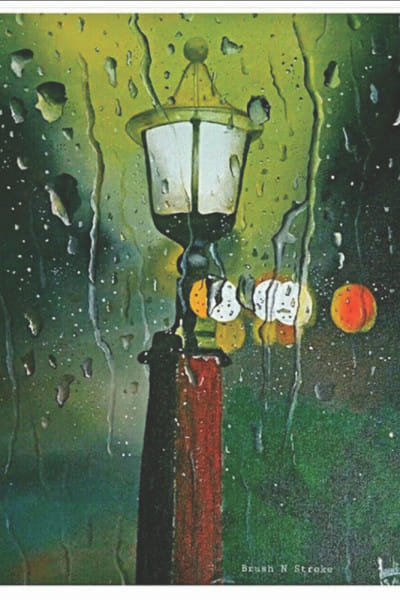Cliché

In poetry's kaleidoscope the clichés are sentiments, philosophy.
Bokulphul, the lamppost pole of the moholla, these are susceptible too!
Closed doors or pukurghat—be it shan badhano or dilapidated
--the poets seem to feast on them.
But I see that the land of poetry is quite similar
to the land of humans, similar to their petty little life.
In poetry Joydhon's Ma has to make her cautious way
after an elongated bath at the pond,
the eternal seedling has to penetrate the topsoil to pronounce its rise
also peeks in the open sore of remittance,
the floating swollen bull has to get ashore after the cyclone
and here the Muse has to make space for the cooked up refugee's plights.
In this kaleidoscope the hawker has to pack up quickly
his handpicked Dhakai saree after an unsuccessful merchandise;
while his jawbones grit unto the motion of tying knots of the sack.
The Budhiya Chong and Moinamoti have to become the Bihar of the monks,
Ibn Botuta and Xinxiang has to keep writing travelogue of their walk,
at Shaj Jalal's makam pigeons have to peck imported wheat,
and an epitaph is to be written in a white-framed black plaque.
Probably the ultimate cliché
in poetry's land is it's final stanza-
where there is no such thing as beginning or end.
Bipasha Haque is a diaspora writer with particular interest in life-the way it is. By profession she is a university teacher.

 For all latest news, follow The Daily Star's Google News channel.
For all latest news, follow The Daily Star's Google News channel. 



Comments